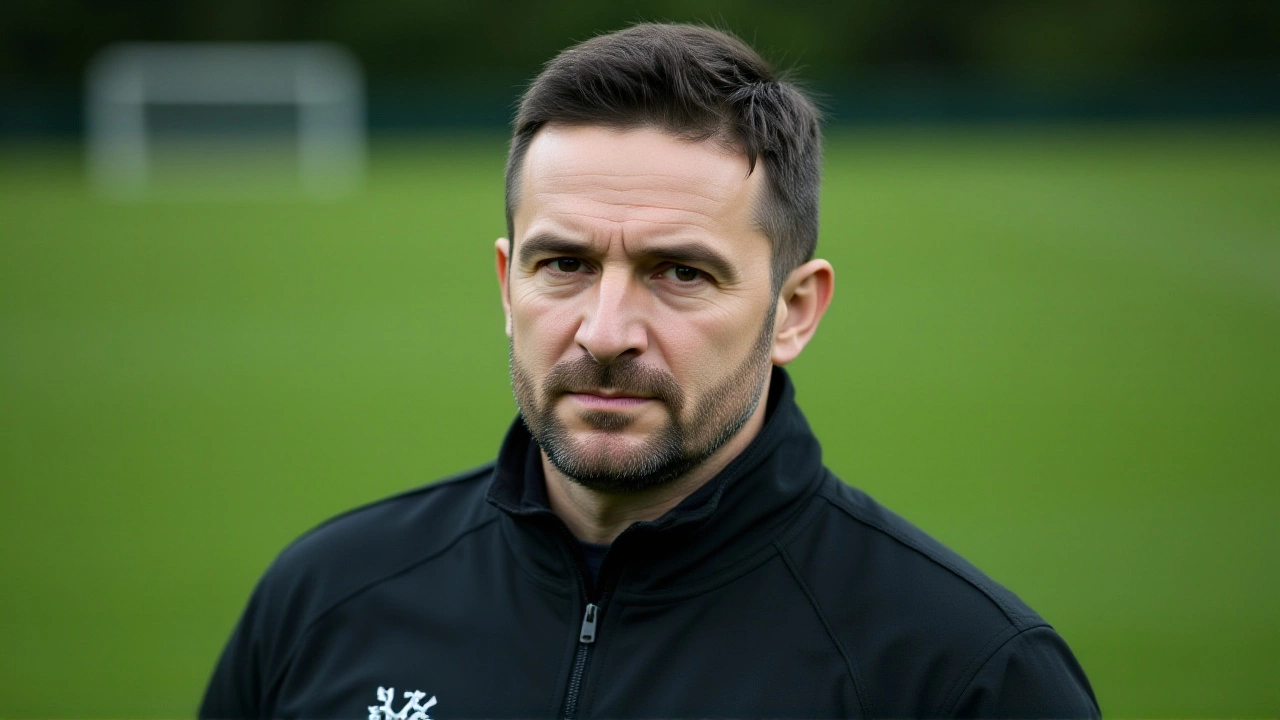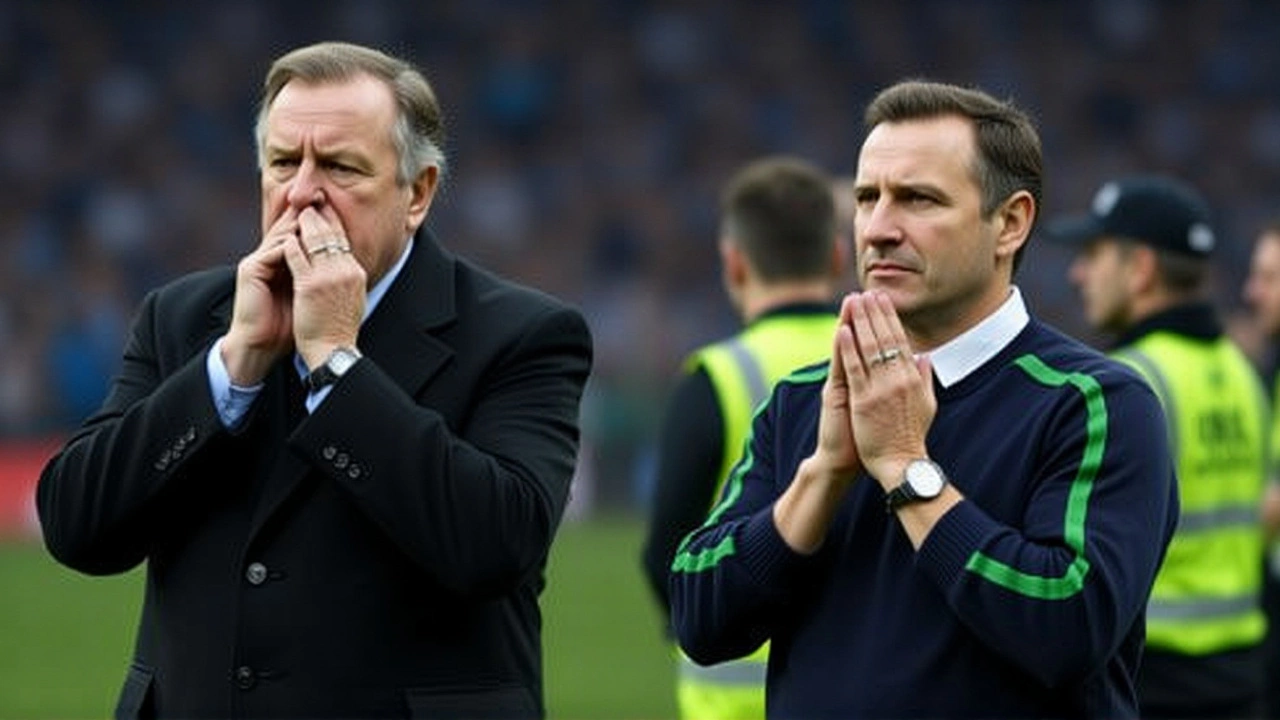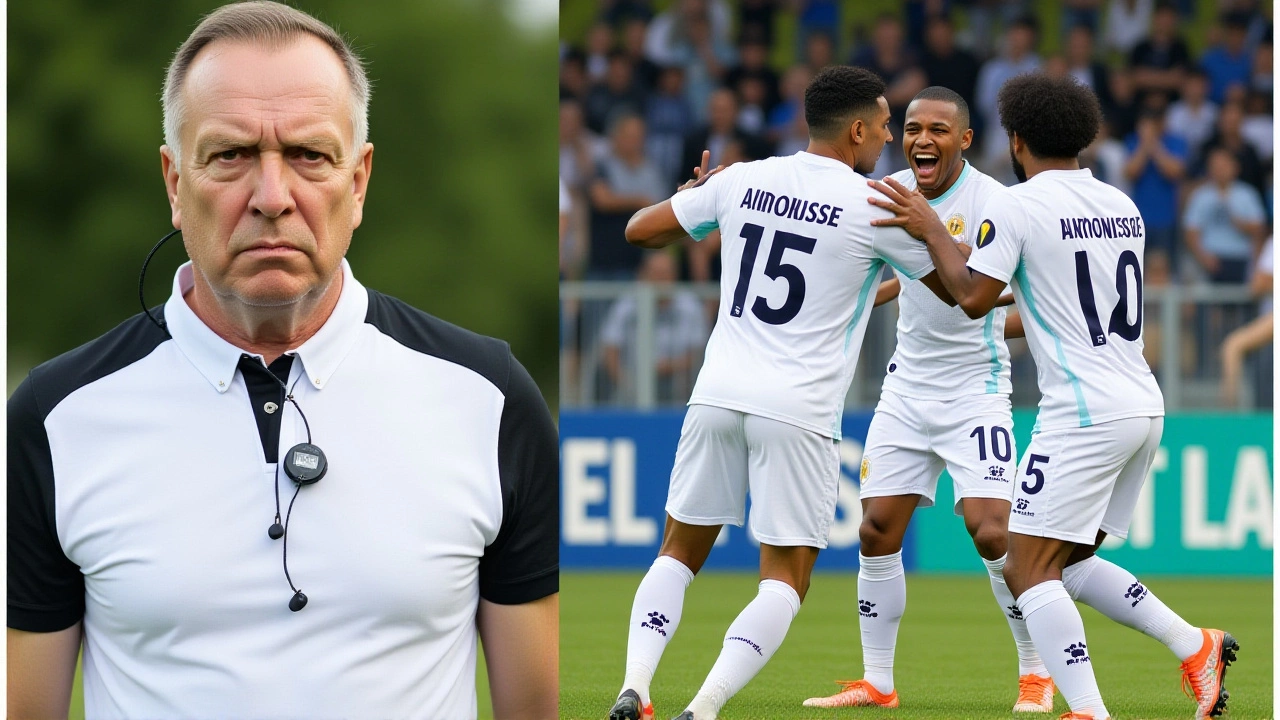Rangers’ Golden Trio: Smith, Advocaat and McLeish Revisited as Blueprint for Ibrox Revival
 Nov, 20 2025
Nov, 20 2025
For decades, Rangers Football Club has chased glory in the Scottish Premiership, but since 2011, the club has been stuck in a cycle of managerial missteps. Now, as new leadership looks to rebuild, the answer isn’t found in trendy tiki-taka or flashy signings—it’s buried in the past. Three men—Walter Smith, Dick Advocaat, and Alex McLeish—are being revisited not as relics, but as a blueprint. As ibroxnoise.co.uk put it in August 2025: "Walter knew it. Advocaat knew it. Alex McLeish understood it too." And what they knew was this: Rangers doesn’t win with beauty. It wins with brutality, balance, and belief.
The Foundation: Walter Smith’s No-Nonsense Formula
Walter Smith didn’t just manage Rangers—he defined them. From 1991 to 1998, he built a machine. Not a glamorous one. Not a possession-heavy spectacle. A team that defended like a fortress, pressed with discipline, and punished mistakes with lethal counters. He didn’t need five superstars. He needed seven solid pros and one or two who could turn a game. His spine—Gordan, McCoist, McArthur, McCoist—wasn’t flashy, but it was unbreakable. "He built from the back," wrote ibroxnoise.co.uk. "Hard-working players filled the squad. Above all, it was winning football." His legacy? Nine league titles in eight years. Five domestic trebles. And a culture that demanded accountability. Smith’s Rangers didn’t chase headlines. They chased trophies. And they delivered, year after year. Even today, veteran fans still point to his 1992-93 season—when Rangers went unbeaten in the league—as the gold standard.The Dutch Architect: Dick Advocaat’s Explosive Transformation
When Dick Advocaat arrived in July 1998, he was the club’s first foreign manager. Skeptics wondered if a Dutch tactician could handle the physicality of the Scottish Premiership. He answered by spending £35 million in his first season alone. Arthur Numan. Giovanni Van Bronckhorst. Stefan Klos. These weren’t just names—they were upgrades. And they worked. In his debut campaign, Advocaat delivered the treble: league, cup, league cup. The next year? Another league title, and Rangers won five of the first six domestic trophies under his watch. His win rate? 67.2% over 195 games, fourth-best in club history. He didn’t just win—he dominated. But then Celtic, under Martin O’Neill, evolved. They got faster, smarter, hungrier. By 2001, the balance tipped. Advocaat moved to director of football in December 2001, clearing the way for the next architect.The Comeback King: Alex McLeish’s Miracle in 2003
Alex McLeish inherited a squad in transition. Free agents had been sold. Key players were aging. Yet, in his first season (2001-02), he won two trophies. Then came 2002-03: the domestic treble. And with it, Rangers’ 50th league title—a milestone no other Scottish club has reached. He didn’t have the deepest squad. He didn’t sign the biggest names. But he got the most out of what he had. Dado Prso. Nacho Novo. Thomas Buffel. Players others overlooked became legends under him. McLeish’s system? A 4-3-3 that looked simple on paper, but was ruthlessly executed. He played with pace, counter-attacked with precision, and defended with organization. Football FanCast rates him sixth all-time with a 66% win rate across 235 games. What made him special? He understood the Scottish Premiership wasn’t La Liga. It wasn’t the Premier League. It was a war of attrition—and he knew how to win it.
The Problem Since 2011: Losing the Plot
Since McLeish left in 2007, Rangers have cycled through managers who treated Ibrox like a lab experiment. Mark Warburton tried to play Barcelona-lite. Pedro Caixinha brought Brazilian flair that evaporated against Celtic’s grit. Michael Beale, despite early promise, couldn’t replicate the structure that defined the club’s golden eras. "Managers like Warburton and Martin think they can play a 'Barcelona lite' 4-3-3 and win," wrote ibroxnoise.co.uk. "Yet that does not work for Rangers." The data backs it up. Since 2011, Rangers have won just two league titles—both under Steven Gerrard, who, tellingly, leaned heavily on defensive solidity and set-piece dominance. Not possession. Not flair. The same principles Smith, Advocaat, and McLeish mastered.Why This Matters Now
Rangers are at a crossroads. After a turbulent period that included administration, relegation, and managerial turnover, the club’s hierarchy is quietly studying the old playbook. Not because they’re nostalgic—but because it worked. The three-man formula—solid defense, midfield control, rapid transitions—isn’t outdated. It’s timeless. Especially in a league where Celtic still dominate by sheer willpower and depth. Current management isn’t just looking at stats. They’re watching old match footage. They’re asking: How did Advocaat integrate foreign players into a Scottish dressing room? How did McLeish motivate a squad with limited resources? How did Smith turn a group of journeymen into champions? The answer isn’t in analytics dashboards. It’s in the grit of a 1993 league game at Celtic Park. In the roar of Helicopter Sunday in 2003. In the quiet confidence of a manager who knew exactly what his club needed.
What’s Next?
The next manager won’t be hired because they’ve won trophies in Belgium or Portugal. They’ll be hired because they understand the DNA of Rangers. The next big signing won’t be a £15 million wonderkid. It’ll be a 28-year-old defensive midfielder who’s played 300 games in the Scottish Premiership. The next tactical shift won’t be a 3-4-3. It’ll be a 4-5-1 with two aggressive fullbacks. Rangers don’t need reinvention. They need restoration.Frequently Asked Questions
Why are Smith, Advocaat, and McLeish grouped together as a "trio"?
Though they managed in different eras, all three shared a core philosophy: defensive discipline, midfield control, and fast counter-attacks tailored to the physicality of the Scottish Premiership. None relied on possession-based football. All won multiple domestic trophies. And each inherited challenges—whether rebuilding after Smith’s departure, replacing legends under Advocaat, or halting Celtic’s rise under McLeish—and delivered results.
How do their win percentages compare to modern Rangers managers?
Advocaat’s 67.2% win rate (195 games) and McLeish’s 66% (235 games) far outpace post-2011 managers: Warburton averaged 54%, Caixinha 51%, and Beale 58%. Even Steven Gerrard’s 62%—the best since McLeish—still falls short of the trio’s consistency. The difference? The trio won trophies every season. Modern managers often had one good campaign followed by regression.
Did any of these managers rely on big spending like today’s clubs?
Only Advocaat did—spending £35 million in 1998, a huge sum then. Smith operated on modest budgets, selling players like Brian Laudrup for profit. McLeish famously sold free agents (like Andy Kirk) and reinvested wisely, turning £1 million signings into key contributors. Modern clubs spend £50 million on one player. These three spent smartly, not just loudly.
Why didn’t these managers win European trophies?
They weren’t designed to. Their focus was domestic dominance, and that’s what Rangers fans demanded. Advocaat reached the 2002 UEFA Cup final but lost to FC Porto. McLeish’s 2008 UEFA Cup run ended in the semis. Smith’s 1993 European campaign was cut short by a controversial disallowed goal. Their legacy wasn’t Europe—it was consistency in the Scottish Premiership.
Is the "Rangers way" still viable in today’s football?
Absolutely. Look at Napoli or Dortmund—teams that win with structure, not stars. Rangers don’t need to mimic Manchester City. They need to outwork Celtic. The trio’s model works because it’s built for intensity, not elegance. In Scotland, where weather, pitch conditions, and fan pressure create chaos, discipline still wins. The modern game hasn’t changed that—it’s just forgotten it.
What’s the biggest lesson for Rangers’ current management?
Stop chasing trends. Stop hiring managers because they’ve won in the Netherlands or Spain. Hire someone who’s proven they can win in the Scottish Premiership—with grit, structure, and smart recruitment. The blueprint exists. It’s not hidden in a spreadsheet. It’s on old VHS tapes from 1992 and 2003.